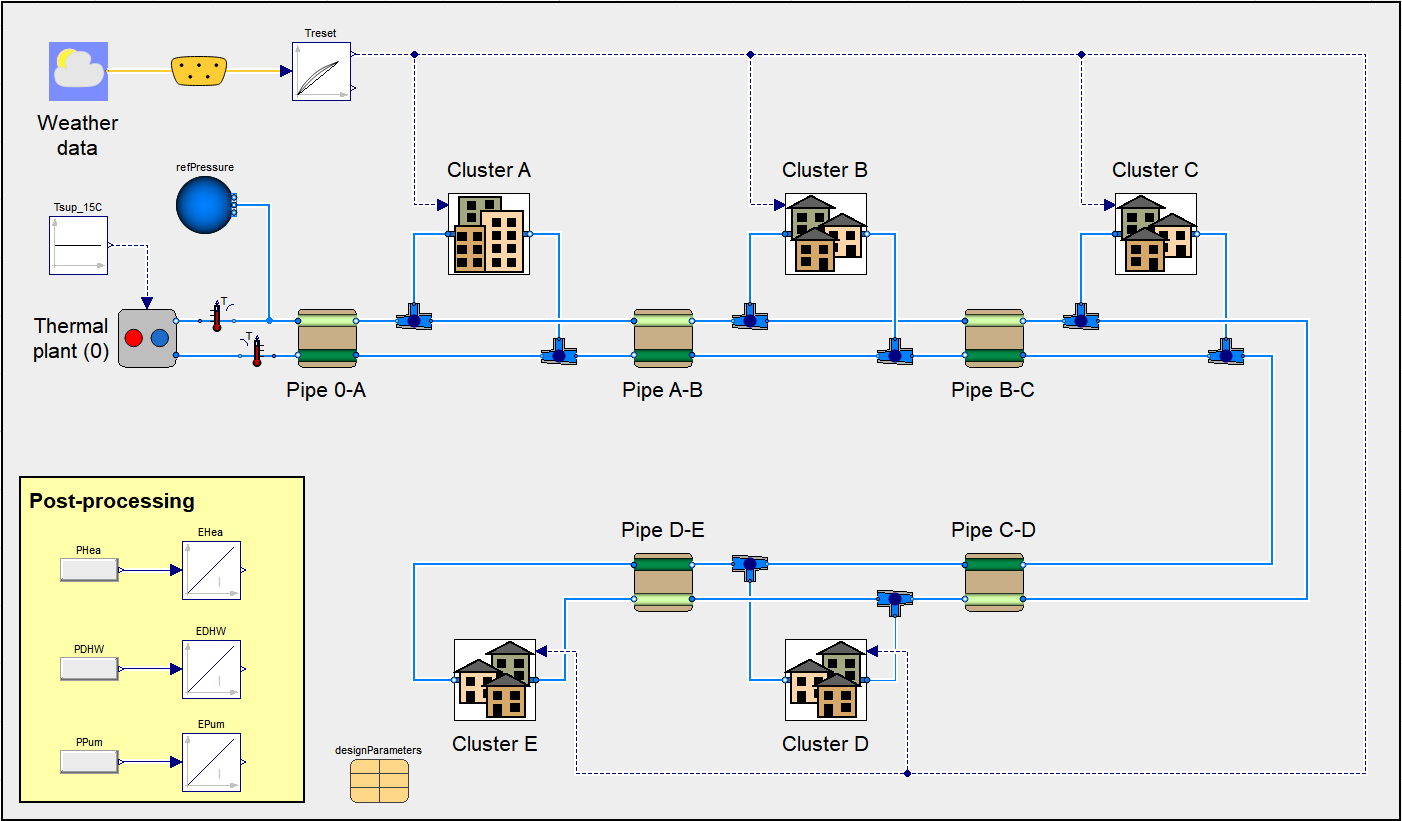Modelica-based simulation of building and district energy systems
PhD course at Aalborg University
This course aims to present latest developments in modeling and simulation of building and district energy systems based on Modelica modeling language. Modelica is an open-source language that features ease of use, visual design of models with combination of Lego-like predefined blocks, ability to define model libraries with reusable components, and support for modeling and simulation of complex applications involving parts from different engineering domains.
The course is organized in three days. In the first day, the course gives a basic introduction of Modelica fundamentals by introducing object-oriented and equation-based modeling. In the second day, the concepts previously learnt are used to develop a building model equipped with a radiator system and an air-based cooling system. In the third day, a district heating system model will be developed by connecting substations, piping network and central plant.

Target audience:
The course is directed towards PhD students who aim to use Modelica for simulation of building and district energy systems. MSc students, academics (e.g. postdocs, researchers) and professionals from the industry are also welcome. Teaching will be provided as a mix of lecture presentations, hands-on trainings, simulation exercises and discussions.
Dates:
The next edition of the course will take place on August 25-27, 2025.
Max. number of participants:
20
Location:
Copenhagen, Denmark (Aalborg University campus - A.C. Meyers Vænge 15, 2450 København)
The course is designed for in-person participation. However, a limited number of slots will be available for online participation. For more info about registration and online participation, please see here.
Fee:
The course is free for students and academics. If you are from the industry, the fee for participating in the course is 800 EUR.
Prerequisites:
While previous Modelica experience is not required for this course, familiarity with the following areas could enhance your understanding:
- Programming (any language)
- Building simulation programs
- Concepts of thermo-fluid dynamics and heat transfer mechanisms in buildings
Software requirements:
The course will be delivered using Modelon Impact and the Modelica Buildings Library. All instructions for accessing the platform will be provided at the beginning of the course. There is no need to install any software in advance.
Criteria for assessment:
The completion of the couse is awarded with 3 ECTS (European Credit Transfer System). Participants will be evaluated through a final assignment, which consists in the preparation of a report to be delivered 2 weeks after the end of the course.